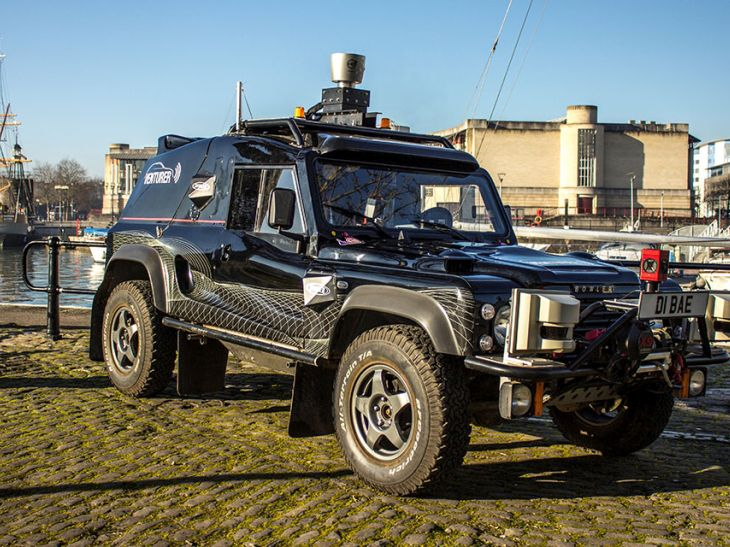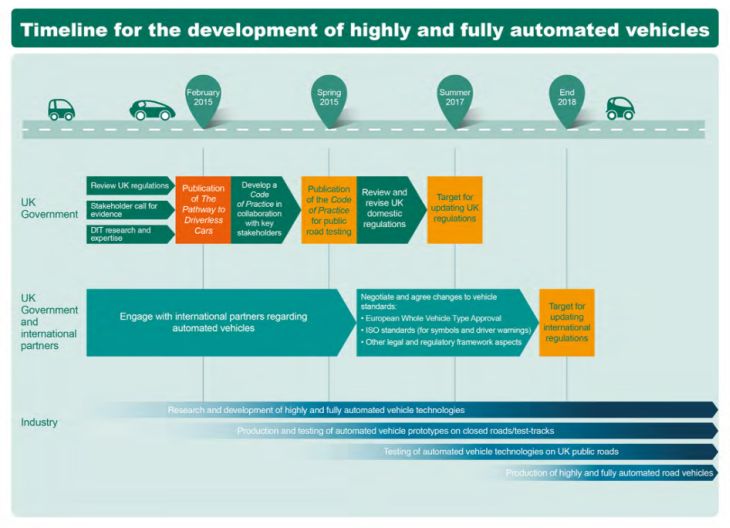Driverless tests on UK public roads given go ahead

Automated vehicles in the UK are clear to begin testing on public roads after the Department for Transport released a report stating that the country was in a “unique position” to make these trials a success.
Most European countries have signed the Vienna Convention on Road Traffic, requiring every moving vehicle to include a driver. However the UK has signed, but not ratified the convention meaning it can give the green light to autonomous trials.
Even in North America this is not the case as, although the country introduced legislation to permit testing of automated vehicles, only a small number of states have chosen to adopt the ruling and there is confusion over best practice.
Presence of test driver
The government’s report states how real-world testing of automated vehicles on public roads is possible in the UK today, although a test driver should be present to ensure the vehicle is operated safely and complies with road traffic law.
Test drivers will obviously need to be proficient in the driving of ordinary road vehicles, but Hugh Boyes, cyber expert at the Institution of Engineering and Technology (IET) sees them needing to be accomplished in autonomous technology too.
“To ensure a safe system of operation, the driverless car test trials require not only a good level of user skill and experience, but the user should also be able to demonstrate a good understanding of the systems in the car, the potential failure modes, how faults are indicated and most importantly how they will take swift and decisive control of the vehicle if they suspect there is a fault.
Collision insurance
Insurance will not be a stumbling block either as initial government discussions have shown a willingness from companies to provide corporate cover for the testing of automated vehicles. The only stipulation being that a driver must be in charge of the car’s safe operation at all times for this to occur.
A code of practice for the testing of driverless cars is being produced by the government. It is likely to include guidance on a test driver being required, the fitting of a data recorder and using proven vehicle technology.
Vehicle data recorders will be used to determine liability in the event of an accident involving a driverless car. Along with other driving information, they will show whether the driver or technology was in control at the time of the collision.
Business use cases
Driverless cars may have been originally conceived with personal use of the technology in mind, but John Chuhan, chief risk officer at business mobility firm Alphabet, would like to see the government incorporate business use into its legislation as well.
“While driverless vehicles are expected to save motorists six weeks a year in driving time, the benefits to businesses could be even greater. As well as increasing safety and improving fuel efficiency, driverless vehicles will play a huge part in achieving full business mobility,” he said.
“Employees would be able to hold business meetings and work while travelling to their destination – with the peace of mind that their car is a first-class driver.
The final code of practice for driverless vehicles is due for publication in spring 2015 and the first driverless cars, which includes projects based in Coventry, Bristol and Greenwich, will be tested on the roads by the summer.


Leave a comment
Alternatively
This will only be used to quickly provide signup information and will not allow us to post to your account or appear on your timeline.